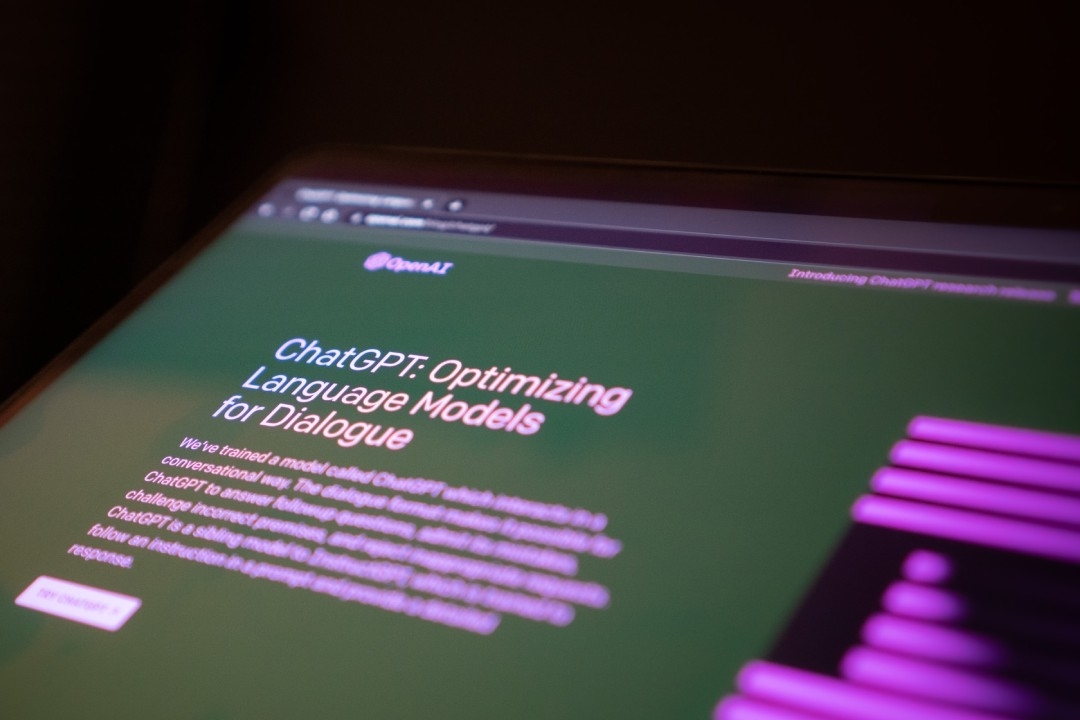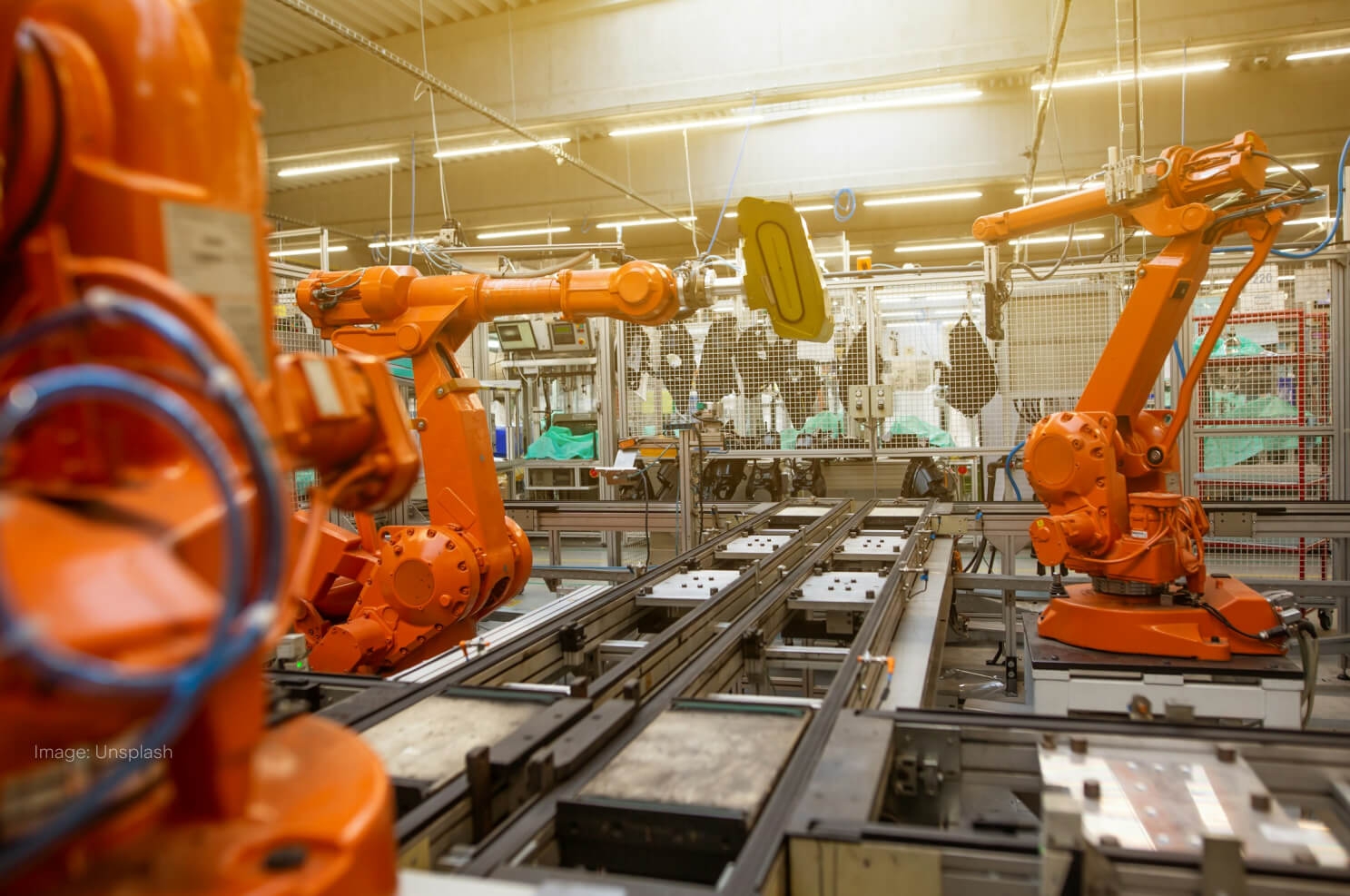
OpenAI stock: Can you invest in ChatGPT?
The artificial intelligence chatbot ChatGPT has become a global sensation. There are a number of ways to get exposure to OpenAI and other artificial intelligence stocks.
What is OpenAI?
OpenAI was launched in 2015 as an artificial intelligence (AI) research laboratory. It's led by machine learning expert Ilya Sutskever, and former CTO Greg Brockman. They have a team of researchers, engineers, and scientists that aim to advance the AI field. Elon Musk was a founding co-chair with the current CEO of OpenAI, Sam Altman.
They received funds from Brockman, Altman, and Musk at the start. Other names in the tech industry like Reid Hoffman, Jessica Livingston, and Peter Thiel contributed, as did firms like Amazon Web Services (AWS), Infosys, and Y Combinator's former research arm, YC Research. With over US$1 billion in funding, OpenAI was founded as a non-profit.
Today, it is the research laboratory non-profit OpenAI Incorporation and OpenAI Limited Partnership subsidiary that bring in profits. The firm transitioned to a capped-for-profit status in 2019 to allow additional investment from venture capitalists and to grant employee stock options.
There is significant competition for these experts, and their profit-focused competitors could provide more attractive compensation options to workers. Once investors and employee stock options are fulfilled, the leftover profits are returned to OpenAI, which is governed by the non-profit part.
OpenAI is best known as the parent company of ChatGPT, the chatbot that can answer questions in natural language. It uses a large language model (LLM) named Generative Pre-trained Transformer (GPT). The AI technology has been trained on large data sets and can generate human-like answers.
OpenAI's ChatGPT was made available to the public in November and rapidly gained traction among internet users. For a fee, the premium ChatGPT Plus version can also be accessed. This includes GPT-4, which was launched in March 2023 and shows considerable improvement in standardised testing results. GPT-4 can also accept text and image inputs.
The company also has a deep learning tool known as DALL-E that generates images. It creates digital images based on natural language inputs, or 'prompts', using a version of ChatGPT. DALL-E 2 can be integrated into applications, with OpenAI's fees depending on the resolution of the image generated. They have also released Whisper AI, which uses AI to convert spoken language into written text.
In May 2023, OpenAI reportedly closed an investment fund that also plans to invest in startups pushing boundaries in the AI industry.
How to buy OpenAI stock?
You can't buy OpenAI stock currently. OpenAI is a private company, and as of 9 June 2023, it had not made an official announcement related to an initial public offering (IPO) to become a publicly listed company.
This means searching for the OpenAI stock symbol won't bring any credible results for investors wanting to find the firm on a stock market exchange at this point in time.
Further media attention is likely to be concentrated on the business, and this situation may change in the future. While you can't directly invest in OpenAI as it's not a publicly traded firm, there are various ways to gain exposure to the business and the general AI trend.
💡Related: Top AI Companies on ASX→
How to invest in OpenAI indirectly
OpenAI has been working together with Microsoft ($MSFT) since 2016 and has received investments worth billions of dollars from the software giant. Microsoft plans to integrate AI capabilities into its services, like the Bing search engine, while OpenAI benefits from access to its significant hardware power and data sets. However, investors should note that OpenAI is likely only a small part of Microsoft's US$1.7 trillion market cap, and the stock price can be influenced by other factors.
As one of the largest publicly traded companies in the U.S. and a member of the trillion-dollar club, investing in ETFs is another way to gain exposure to Microsoft. Returns in the S&P 500 have been driven by a tech recovery and have had an outsized influence on ETFs like $SPY and $IVV.
For a specific look at this sector, the Nasdaq index focuses on it and is tracked by several ETFs such as $QQQ or $QQQM.
As AI models become more complex, they require greater computer power and benefit from being able to refine their performance with larger datasets. This puts large publicly traded tech firms in a good position, especially those who've built up considerable cash reserves in recent years. They're also able to take stakes in and acquire smaller, more specialised private companies.
Google ($GOOG) has revealed its Bard AI chatbot, which is powered by its Language Model for Dialogue Applications (LaMDA) framework. It can provide answers based on current research pulled from the internet, while ChatGPT has been trained on specific libraries whose sources end in 2021. A subsidiary of Google's parent company, Deepmind, is developing the Sparrow chatbot, which aims to reduce unsafe and inappropriate responses to user questions.
Amazon ($AMZN) has launched a suite of AI models as part of AWS named Amazon Bedrock. Other companies can use these technologies in their own applications. Meta ($META) has long integrated AI into its products like Facebook and Instagram. They've released the code behind their LLM model, LLaMA, and built custom computer chips to help with AI tasks.
On the hardware side, chipmakers have benefitted from the recent AI stock boom. In particular, Nvidia ($NVDA) expects significant future demand for their specialised AI chips that could make AI models like ChatGPT run faster and more efficiently. Other semiconductor stocks, including from larger firms like IBM ($IBM) and Intel ($INTC) could also be helped by the trend.
AI can be used in various applications and it's likely to be implemented in most digital services over the coming years. There are few pure-play AI stocks at this stage, with many being startups or parts of larger firms. Many consider the end-to-end enterprise development platform C3.ai ($AI) as a business that's fully in the AI industry.
💡Related: How to buy Microsoft shares in Australia→
Who has invested in ChatGPT?
OpenAI has had several rounds of funding since its beginnings in 2015. Its founders pledged to invest over US$1b, but actual amounts have not been confirmed. They include Altman, Musk, Brockman, Ilya Sutskever, Wojciech Zaremba and John Schulman. According to Altman, the earliest funds arrived in 2016.
In 2019 Khosla Ventures and Microsoft made investments in the business. Funds supposedly came from Tiger Global Management, Andreessen Horowitz and Bedrock Capital in 2021, while Matthew Brown Companies was linked to an investment in 2022.
ChatGPT's most significant backer has been Microsoft, with whom they started working together in 2016. The software company's first investment in 2019 was worth US$1b and returned in 2021 with at least another US$2b. In January 2023 a multi-year investment was announced and is believed to amount to US$10 billion.
In April 2023 OpenAI raised around US$300m in funds from venture capital firms. Sequoia Capital, Andreessen Horowitz, Thrive and K2 Global were involved, while reportedly being joined by Founders Fund. The total amounts and investor stakes in OpenAI have not been made public.
What is the market valuation of OpenAI?
Microsoft's $10b investment in January 2023 was at a US$29b valuation. In the April 2023 capital raising by venture capital firms, OpenAI was valued between US$27b and US$29b. However, this is not the same as a market valuation. There's less transparency around the financials of private companies and they lack the real-time valuation provided by the stock market for publicly traded companies.
OpenAI stock FAQs
Is OpenAI publicly traded?
OpenAI is not publicly traded and remains a private company. It is not on any stock market exchange as of the end of May 2023.
Is OpenAI owned by Microsoft?
Microsoft describes its relationship with OpenAI as a partnership. Limited details of their deal have been published, but it reportedly has a complicated structure due to OpenAI's capped profit status. Microsoft supposedly has rights to a decreasing percentage of OpenAI's profits based on several earnings milestones, as well as a 49% stake in the firm.
Microsoft's funding and cloud computing infrastructure can allow OpenAI to refine its models by analysing huge volumes of data. Microsoft is OpenAI's exclusive provider of cloud computing services through its Azure division. Which could support the segment against the market leader, Amazon's AWS.
Microsoft has an exclusive licence for OpenAI models, including GPT-4. They plan to incorporate the models across their consumer and corporate products. Microsoft could also release new types of products based on OpenAI’s work.
Is OpenAI going to IPO?
At the end of May 2023, OpenAI had not announced plans for an IPO. It could potentially occur in the future, but investors can only speculate until the company confirms plans for it to happen itself. OpenAI's capped profit structure means the return on investment would be limited to 100-fold the original sum. It is not clear whether this can be maintained by going public or how these investors would be affected by an IPO.
Has Elon Musk invested in OpenAI?
Elon Musk's relationship with OpenAI dates back to its founding in 2015 and includes financial backing for the organisation. He reportedly invested around US$50m into the venture over the years but no longer owns a stake in OpenAI.
Why did Elon Musk resign from OpenAI?
Elon Musk left OpenAI in 2018 to focus on Tesla, as his position on the board represented a growing conflict with the EV maker's AI work. They were competing for the same engineers, and Musk's offer to takeover OpenAI was reportedly turned down at the time. He has raised concerns about the risks AI could present to society but has also created a new AI startup called X.AI.
Does OpenAI have an app?
OpenAI launched an iOS app in May 2023. Downloads exceeded half a million downloads in its first six days, despite only being available in the U.S. at this time. The app can sync a user's chat history and uses Whisper to enable voice inputs. It's a free product and can now be accessed in multiple countries, including Australia, New Zealand, and the UK. OpenAI also has an Android version in the pipeline.
Who is the CTO of OpenAI?
Mira Murati is the Chief Technology Officer of OpenAI from May 2022 to the present (as of May 2023). Mira first joined OpenAI in 2018, with her responsibilities now including oversight of the company's research, safety teams and product. She is an advocate for artificial intelligence regulations, and recently spoke about how OpenAI is helping to work on this:
"These systems should be regulated. At OpenAI, we’re constantly talking with governments and regulators and other organizations that are developing these systems to, at least at the company level, agree on some level of standards. We’ve done some work on that in the past couple of years with large language model developers in aligning on some basic safety standards for deployment of these models. But I think a lot more needs to happen. Government regulators should certainly be very involved."
This does not constitute financial product advice nor a recommendation to invest in the securities listed. Past performance is not a reliable indicator of future performance. As always, do your own research and consider seeking appropriate financial or taxation advice before investing.

Megan is a markets analyst at Stake, with 7 years of experience in the world of investing and a Master’s degree in Business and Economics from The University of Sydney Business School. Megan has extensive knowledge of the UK markets, working as an analyst at ARCH Emerging Markets - a UK investment advisory platform focused on private equity. Previously she also worked as an analyst at Australian robo advisor Stockspot, where she researched ASX listed equities and helped construct the company's portfolios.

